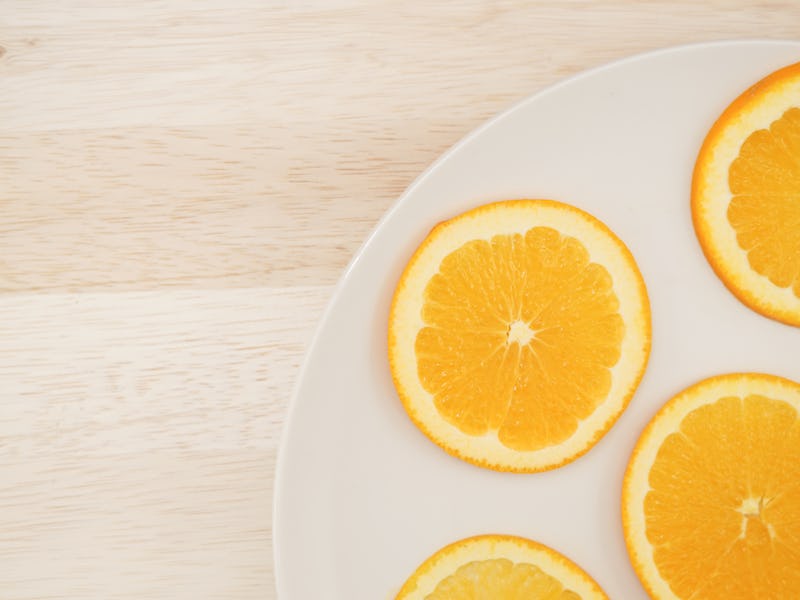Do oranges prevent colds? A food scientist debunks the Vitamin C remedy
Why do we still believe this?

Re-emerging from a two-year-plus quarantine means we all must re-acquaint ourselves with the common cold.
After enjoying (well, “enjoying”) more than two years without the seasonal rhinovirus for lack of exposure, all who have essentially reintegrated into society must reckon with this regular part of chilly weather.
Conventional wisdom has long suggested that the key to getting past a cold is oranges — lots and lots of oranges. The main reason? Oranges are chock full of ascorbic acid, a.k.a. vitamin C.
Chemist and two-time Nobel laureate Linus Pauling spent the last 24 years of his career as a vitamin C and citrus spokesman. After hearing in 1960 from a biochemist that more ascorbic acid would increase his lifespan by at least 25 years, Pauling and his wife steadily took greater amounts of vitamin C than the recommended daily value. He reported that both of them felt “livelier and healthier.” Soon, he had a daily habit of taking 3000 milligrams of vitamin C, and before long, noted that the severe colds he had suffered all his life had vanished.
In 1970, he published the book Vitamin C and the Common Cold.
For all the good Pauling has done for science, this contribution completely missed the mark. While we must consume vitamin C, the notion that they boost cold recovery lacks scientific evidence. Rui Hai Liu, a food science professor at Cornell University, gets into how ascorbic acid is many good things, but not a cold treatment.
Do oranges help with colds?
Despite the myth’s persistence, vitamin C doesn’t make colds go away any faster — neither in massive doses nor in a single orange. While this vitamin helps heal wounds and fortifies the immune system, there’s not enough evidence that vitamin C on its own banishes the sniffles.
“Generally, people think if you improve the immune system, you have a better defense for the cold and the flu, but actually, vitamin C has no effect on the prevention or treatment of a cold or flu,” Liu tells Inverse.
Oranges are rich in vitamin C at about 82 grams in a medium fruit, covering 92 percent of the daily recommended value. The body doesn’t naturally produce vitamin C, so people must consume it from food or supplements.
There’s an upper limit even for good things. The intestines can absorb only so much vitamin C at one time, and regularly taking more than 3000 milligrams can lead to diarrhea and increased production of kidney stones. One danger of supplements is that it’s much easier to take megadoses that Pauling was keen on, so one can take more vitamin C than they ought to.
What are the benefits of vitamin C?
Anyone who grew up with even the mildest interest in sailing and history knows that vitamin C keeps scurvy at bay. Caused by serious vitamin C deficiency, this disease causes weakness and poorly healed wounds. Vitamin C also synthesizes collagen, a fibrous protein found in bones, cartilage, blood, the immune and nervous systems, and more.
So, while vitamin C absolutely has its health benefits, that doesn’t translate directly to cold symptoms.
Liu advocates sourcing vitamins and minerals primarily from whole foods rather than supplements. “I think that each [vitamin] has its own function, so you need a wide variety of fruit and vegetables with different compounds, phytochemicals, and antioxidants,” he says. Vitamins from many different sources, rather than a ton of just one vitamin, will more likely keep us healthy.
Liu doesn’t single out vitamin C as any sort of panacea. “Vitamin C is only one of the nutrients,” he tells Inverse. “There’s other nutrients, antioxidants, vitamins, and also phytochemicals with beneficial effects.” Rather than eating a pound of oranges daily, eating several servings of various fruits and vegetables will certainly boost health, even if that doesn’t clear your sinuses immediately.
What actually helps with colds?
While there’s some promise for zinc as a cold treatment, it likewise lacks scientific evidence. Unfortunately, the best way to cure a cold is to avoid getting one entirely by keeping the body rested and hydrated, avoiding those with cold symptoms, and getting all those precious phytochemicals.
As for easing cold symptoms, hot tea can help ease a sore throat. Though citrus isn’t a cold cure, the acidity does cut through mucus in the throat. Gargling one cup of warm water with one teaspoon of salt also soothes the throat. Humid air, either from a humidifier or from evaporating a bowl of water, is easier on the nostrils.
This just goes to show that even two-time Nobel laureates can be wrong.
This article was originally published on